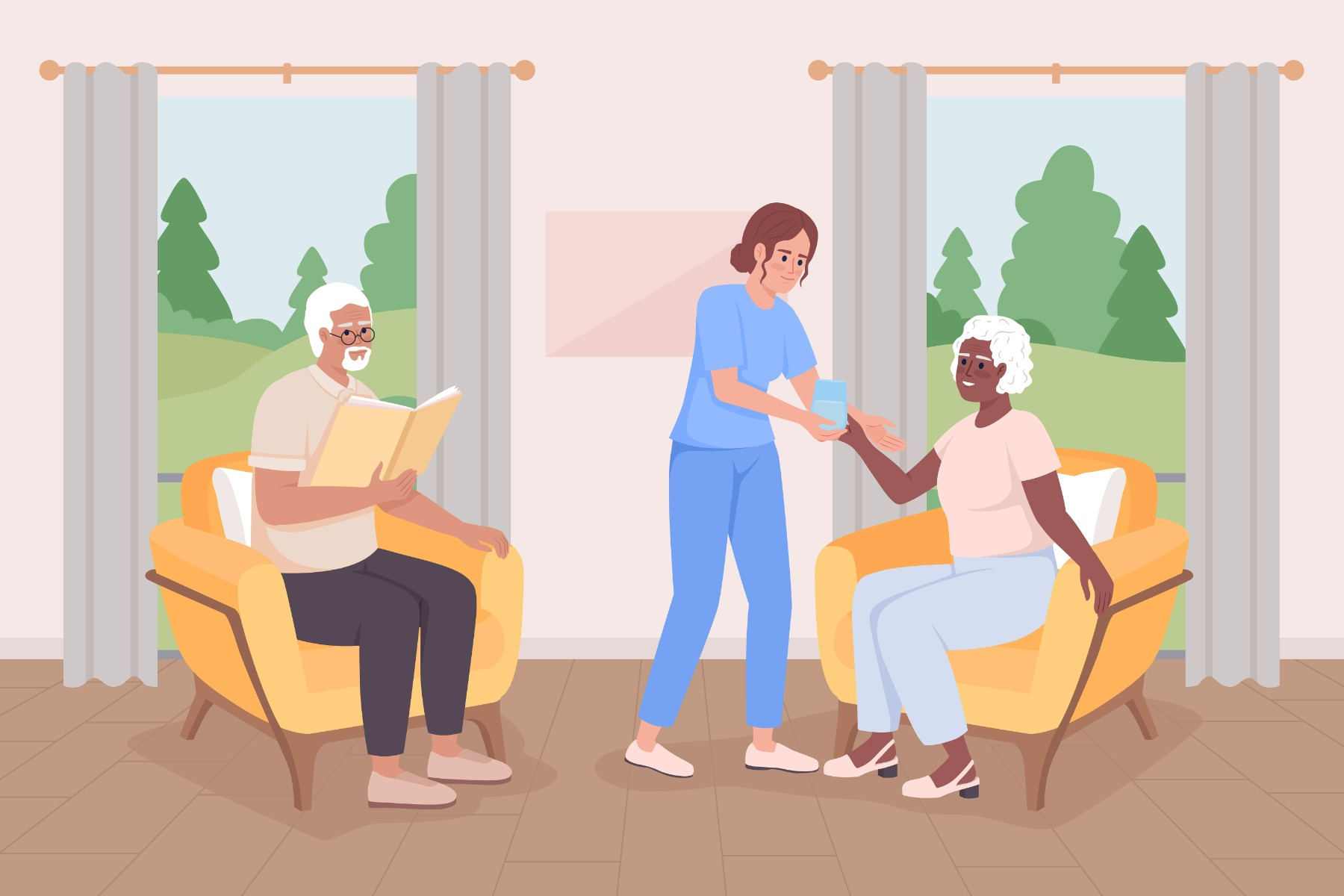Featured image: NTL studio on Shutterstock
Working in the Refugee Health setting involves working with clients from a multitude of cultural backgrounds with widely varying life experiences. However, what they all commonly share is the immense challenge of adapting to a new life and culture of which they have not been able to adequately prepare for, resulting in a vulnerability to poorer health outcomes.
The challenges faced by refugees in Australia’s health systems largely revolve around communication, health literacy, and the navigation and expectation of health services. Refugee health staff work towards overcoming these challenges to achieve the best and most equitable health outcomes for clients.
The principles of cultural awareness in practice are foundational to this goal, and we have provided our ten essential tips below:
1. Be welcoming
When meeting a new consumer, smile, be kind, friendly, patient and very flexible! Introduce yourself, your colleagues, and your roles. Remember, body language speaks words.
2. Treat unique individuals for who they are
Approach everybody as a unique individual and try to avoid making assumptions based on someone’s country of origin, cultural background, or religious background. Be curious, courteous and kind. Polite and sensitive questions about family members or a client’s migration story help to build trust and break the ice.
3. Interpreters are your friend
Use an interpreter at every health encounter and consider the right language, dialect, and gender. If there is a problem, for example, the person cannot understand the interpreter, get another one. Working well with interpreters takes time and patience. Allow yourself more time than you think you need to complete a client interaction, and whatever you want to say – halve it. If you have seven points you want to convey, condense them to three. Keep it simple and use teachback to check that what you have said is what has been understood.
4. Confidentiality and Consent
Explain confidentiality and consent – these concepts help to restore personal agency and a sense of control. Building trust with patients may take time, but for people who have experienced trauma and adversity, it is essential to enable them to feel safe to seek and meaningfully engage with care.
5. Explain tests and procedures
Explain every test/procedure people are having and why. Follow up, and let people know their results, even if they are normal. Explain medications and how to take them, use blister packs such as Webster packs, and explain what they should do when they finish their medication, for example – how to get more if they have repeats.
6. Navigating the health webs
Help people navigate the health systems. Just think how complicated it is to navigate already, then try in another language! You may need to make appointments for people, write down the appointments so that even if they can’t read the appointment card, they can show someone, give people a map of where the appointment is, show them a picture of the outside of the building on google maps if possible. The NSW appointment translator tool is really helpful.
7. Let them ask
Please let people ask questions. Focus on listening to what your patients want to say instead of what you want to tell them. Sometimes people just need you to listen. Validate, commiserate and then be honest, sincere and realistic about what you can do to help.
8. Remember patient-centred principles
Patient-centred care principles are key! Use a trauma-informed framework and give your patients choice, autonomy and control in their care. If your patients have multiple issues, ask them to prioritise them for you to work through.
9. Remember resilience
People of refugee backgrounds are often more resilient and resourceful than people assume they are. Remember to foster these strengths.
10. Be reflective
Imagine yourself in your patient’s shoes. If you were in a new country and couldn’t speak or read the language and were unfamiliar with the health system, how would you feel?
Providing culturally appropriate and effective nursing care for people from refugee backgrounds can be both rewarding and challenging. Take time to build trust and listen with compassion – but most importantly, being willing to advocate and show leadership in providing responsive care based on client needs creates an opportunity to make a genuine difference in people’s lives.
About the contributors:
Michele Greenwood RN, BSSC, MNg, GradCert Inf.Con
Michele has worked in Refugee Health in Coffs Harbour for over 20 years. Michele established the nurse led Refugee Health Clinic in 2006. Michele is a member of the Refugee Nurses Association of Australia executive committee – and is the CNC and Manager of the Refugee Health clinic in Coffs Harbour for the MNCLHD.
Jan Williams MACN RN/RM, BNg, MNg, GradCertMgt
Jan has worked in refugee health in Adelaide and overseas for over 30 years and has been involved at both a state and national level in the development of best practice clinical guidelines in Refugee Health – and Standards of Practice for Refugee Health Nurses. Jan is co-chair of the Refugee Nurses Association of Australia and is the team manager for the SA Refugee Health Service.
Matthew Carew RN, BNg, Grad Cert Emerg Ng
Matthew is a Refugee Health Clinical Nurse Consultant for Tasmanian Health Service – North and has a prior background in emergency nursing as Associate Nurse Unit Manager at the Launceston General ED.
References:
Fleishman, J., Kamsky, H. and Sundborg, S., 2019. Trauma-informed nursing practice. OJIN: The Online Journal of Issues in Nursing, 24(2)





